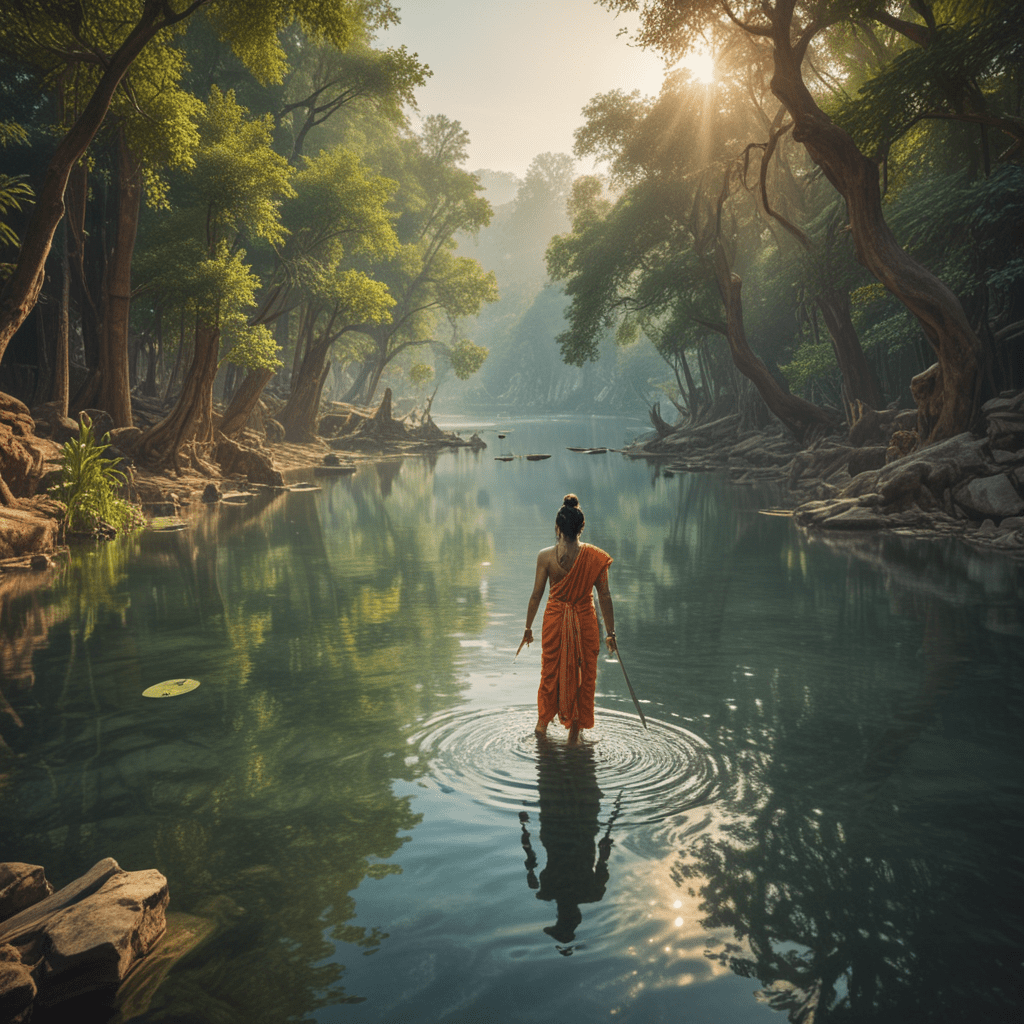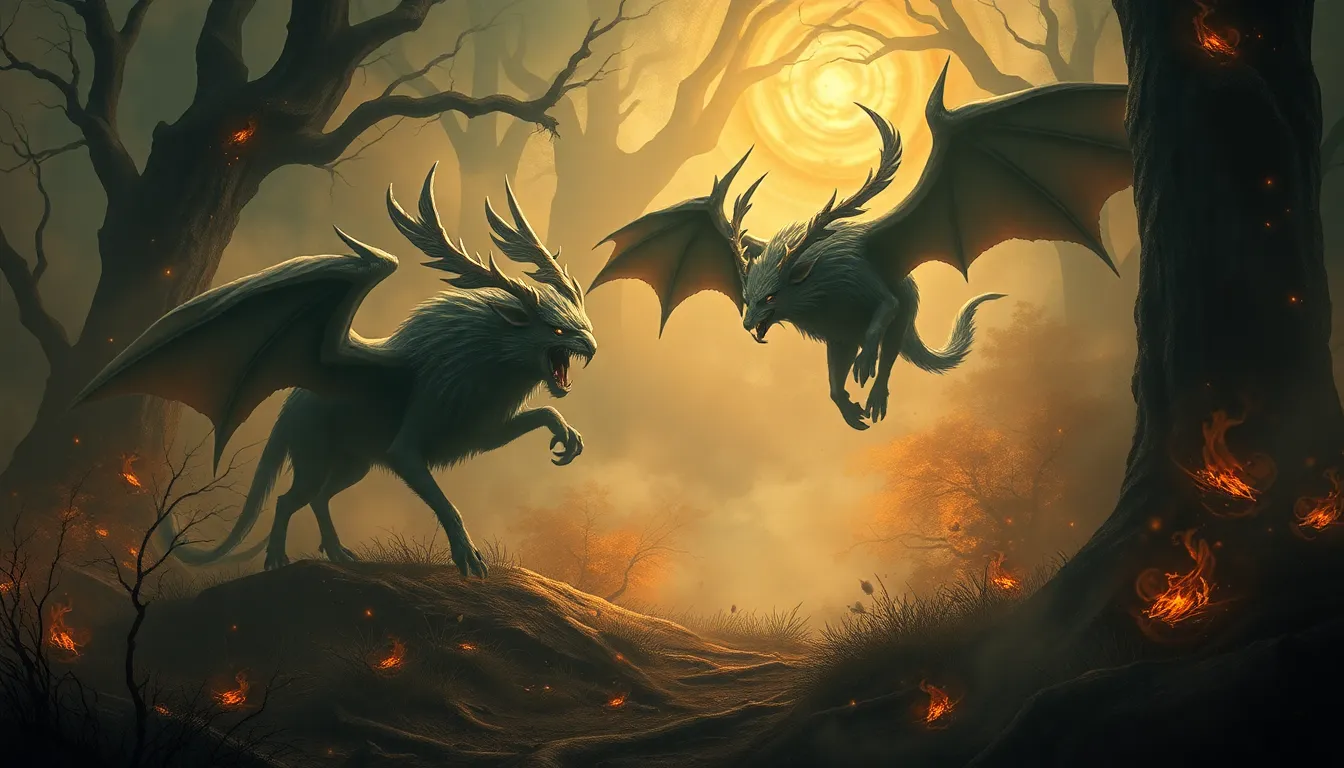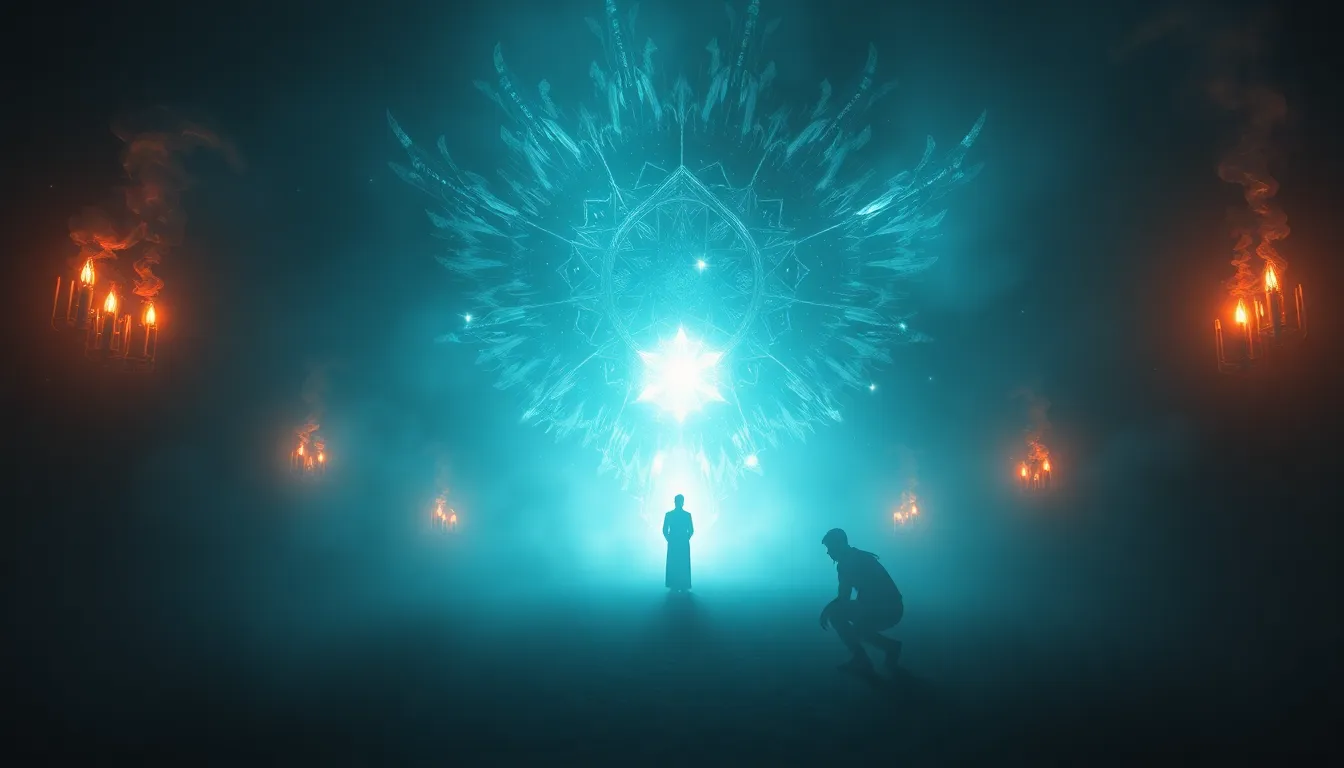The Mythical Lakes in Hindu Mythology
I. Introduction
Lakes are often associated with mystery and magic, and the ones found in Hindu mythology are no exception. These lakes are said to possess incredible powers and are often the site of important events in the stories of the gods and goddesses. We will explore some of the famous mythical lakes in Hindu mythology, and their significance.
II. The Cosmic Ocean (Samudra)
The cosmic ocean is the primordial body of water from which all of creation emerged. It is said to be infinite in size and depth, and it is often associated with the god Vishnu. The cosmic ocean is home to many mythical creatures, including the giant snake Vasuki and the churning rod Mandara.
III. The Milky Ocean (Kshirasamudra)
The milky ocean is located in the celestial realm, and it is said to be the home of the gods. It is made up of milk, and it is said to be so vast that it takes a thousand years to cross. The milky ocean is often associated with the god Vishnu, who is said to reside on its shores.
IV. The Lake of the Moon (Chandrasaras)
The lake of the moon is located on the moon, and it is said to be the source of all water on earth. It is said to be filled with pure water, and it is often associated with the god Chandra, who is the god of the moon. The lake of the moon is often said to be a place of great peace and tranquility.
V. The Lake of the Sun (Suryasar)
The lake of the sun is located on the sun, and it is said to be the source of all light and heat in the universe. It is said to be filled with molten gold, and it is often associated with the god Surya, who is the god of the sun. The lake of the sun is often said to be a place of great power and energy.
VI. The Healing Lake Pushkara
The lake of Pushkara is located in the state of Rajasthan in India. It is said to be one of the holiest lakes in Hindu mythology, and it is believed to have the power to heal all diseases. The lake is associated with the god Brahma, who is said to have created it with his own hands.
VII. The Lake of Brahma (Brahmasara)
The lake of Brahma is located in the celestial realm, and it is said to be the home of the god Brahma. It is said to be filled with pure water, and it is often associated with the creation of the universe. The lake of Brahma is often said to be a place of great peace and tranquility.
VIII. The Lake of Vishnu (Vaikuntha)
The lake of Vishnu is located in the celestial realm, and it is said to be the home of the god Vishnu. It is said to be filled with pure water, and it is often associated with the preservation of the universe. The lake of Vishnu is often said to be a place of great beauty and abundance.
IX. The Lake of Shiva (Kailasa)
The lake of Shiva is located on the mountain of Kailasa, and it is said to be the home of the god Shiva. It is said to be filled with pure water, and it is often associated with the destruction of the universe. The lake of Shiva is often said to be a place of great power and mystery.
X. Conclusion
The mythical lakes of Hindu mythology are places of great power and mystery. They are associated with the gods and goddesses, and they are said to have the ability to heal, create, and destroy. These lakes are a reminder of the vast and mysterious power of the divine, and they continue to inspire awe and wonder in people today.
FAQ
Q: What is the most sacred lake in Hindu mythology?
A: The lake of Pushkara is considered the most sacred lake in Hindu mythology.
Q: Which god is associated with the lake of Vaikuntha?
A: The lake of Vaikuntha is associated with the god Vishnu.
Q: Where is the lake of Shiva located?
A: The lake of Shiva is located on the mountain of Kailasa.
Q: What is the purpose of the lake of the moon?
A: The lake of the moon is said to be the source of all water on earth.
Q: What is the significance of the cosmic ocean?
A: The cosmic ocean is the primordial body of water from which all of creation emerged.




